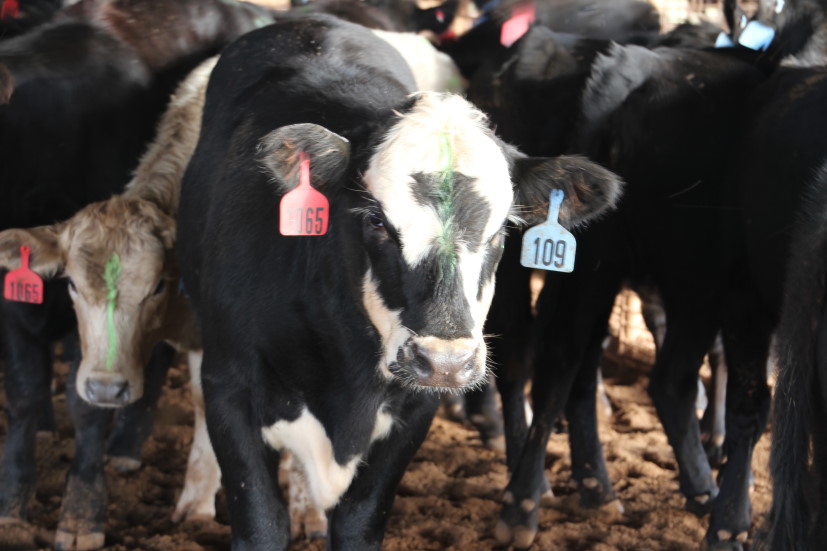
Agricultural News
How to Pick Which Cows to Cull When You Have a Limited Forage Situation
Wed, 20 Apr 2011 6:54:21 CDT
 Many producers are currently being faced with limited forage availability due to drought and/or fire. Oklahoma State University Cow Calf Specialist Glenn Selk says that one of the first management tools that should be evaluated for cow/calf producers is to cull poorer producing cows and capture their value at a time when the prices for cows and culled replacement heifers are strong and allow for some capital investment to be used when cattle prices may be lower and forage supplies are more plentiful.
Many producers are currently being faced with limited forage availability due to drought and/or fire. Oklahoma State University Cow Calf Specialist Glenn Selk says that one of the first management tools that should be evaluated for cow/calf producers is to cull poorer producing cows and capture their value at a time when the prices for cows and culled replacement heifers are strong and allow for some capital investment to be used when cattle prices may be lower and forage supplies are more plentiful.
Below is a suggested order of culling for fall-calving herds in the face of diminishing forage supplies.
Culling order:
1. Open (non-pregnant) old cows
2. Open replacement heifers
3. Old cows with unsound mouth, eyes, or feet and legs
4. Open cows of any age
5. Thin cows over 7 years of age (BCS < 4)
6. Very late bred young cows
The first two items on the list are automatic culls in any forage year. Old open cows are not worth keeping through a low-forage, expensive feeding period. Replacement heifers that were properly developed and mated to a fertile bull or in a well organized AI program should be pregnant. If they are not bred, there is a likelihood that they are reproductively unsound and should be removed from the herd while still young enough to go to the feedlot and grade choice with an A maturity carcass. The more difficult decisions come when the producer is short enough in forage and feed supplies that he/she feels the need to cull cows that have been palpated and found pregnant. That order of culling starts with line 5 on our culling order. This is necessary only when grass and feed supplies are very short. The thin older cows are going to require additional feed resources to have a high probability of being productive the following year and the late bred 2 year olds are least likely to have long-term productivity in your herd.
WebReadyTM Powered by WireReady® NSI
Top Agricultural News
More Headlines...



















